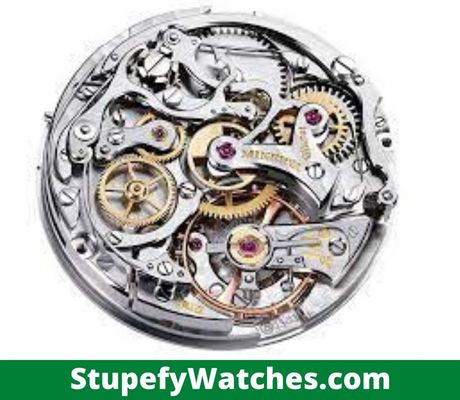The big question we all ask ourselves at some point in our lives… What type of watch is best for me? Do you need a Mechanical watch, an Automatic model (they are also mechanical), or a Quartz one (who hasn’t had a Casio in his life)?
We are looking at the heart of the watch, at the movement that propels them. From the outside, they may look the same, but inside they are very different. Let’s see first what defines each type of watch.
Page Contents
Types of watches: mechanical or quartz
- Mechanical watches: the oldest. They have been with us for a few centuries. His machinery (Caliber) is made up of gears and springs (among other things). You have to wind them every once in a while. The second-hand moves continuously. They can be very expensive and are usually associated with luxury brands.
- Automatic mechanical watches: they are a type of mechanical watch with a particularity. They charge themselves when we have them on the wrist. They accumulate energy with our movement. They can be very expensive and are usually associated with luxury brands.
- Quartz watches: They are the most modern, from the 20th century. They almost killed Swiss watch companies in the 1970s and 1980s. They have an electrical circuit and are battery-powered. The secondhand moves at small intervals. They can be completely digital or both digital and analog. They are very cheap in general.
Mechanical vs Automatic vs Quartz Watches
In this table, you will be able to see the main differences between some watches and others.
| Type Of Watch | Quartz Watches | Mechanical Watches | Automatic Watches |
|---|---|---|---|
| Main difference | The clock relies on a battery to keep running. They have an electronic circuit | Movement with gears, springs. You have to wind it up | Movement with gears, springs. It is charged by movement |
| Visual difference | Analog or/and digital dial. Second-hand works at “jumps” of 1sec | Analog dial. The second-hand moves continuously | Analog dial. The second-hand moves continuously |
| Precision | Very precise: from ∓5 to ∓100 seconds per year | Less accurate: ∓5 to ∓25 seconds per day | Less accurate: ∓5 to ∓25 seconds per day |
| Reliability | Very good as long as they have a battery | Very good as long as they have a power reserve | Very good as long as they have a power reserve |
| Maintenance | Change of battery, change of gaskets, sealing | Review of gears, oils, tightness | Review of gears, oils, tightness |
| Duration | Decades | Hundreds of years with proper maintenance | Hundreds of years with proper maintenance |
| Shock and drop resistance | Very good | Poor | Poor |
| Power source | Battery, the solar accumulator, charging with movement | They are wound every 1 or 2 days | They are wound or loaded by the movement of the wrist |
| Others | Radio-controlled GPS, smart features | They may have a transparent back to see the mechanism | They may have a transparent back to see the mechanism |
Types of mechanical watches
We have two types of mechanical watches, plain mechanical watches, and automatic mechanical watches.
Mechanical watches
Mechanical watches, the oldest of the three, are made up of an intricate mechanism of gears, jewels, springs, and other tiny parts that work as a well-balanced motor. Mechanical watches began to emerge in Europe in the 17th century.

A mechanical watch works thanks to the presence of a mainspring that must be wound periodically by hand or by means of an automatic mechanism (automatic watches, a subcategory of mechanical watches).
This generated force is transmitted through a series of gears that are capable of driving the flywheel or balance wheel, which oscillates back and forth at a constant rate.
One of the pieces called an escapement releases the clock wheels to advance a small amount with each oscillation of the balance, moving the hands of the clock forward at a constant rate.
The escapement is what produces the “tick-tock” you hear in a running mechanical watch.
If we add the force of gravity to all this, we already have our mechanical clock running.
- It is a mechanism truly appreciated by all watch fans worldwide.
The high ranges, with manual manufacture, with in-house calibers and all kinds of luxury extras, can cost a fortune: 50,000, 100,000, 200,000 euros…
A cheap mechanical watch? SeaGull 1963, the watch of the Chinese air force.
In favor of mechanical watches:
- If you perform maintenance every so often, it can last you a lifetime.
- They do not need a battery change every so often.
- There is something magical about winding it up every one or two days.
- They can be very complicated and in some models, you can see the interior through the back.
- Luxury watches from brands such as Rolex, Omega, or Patek Philippe are mechanical or self-winding.
- Currently, they have become a symbol of social status (mid and high-end or luxury models).
Automatic mechanical watches (Automatic watches)
Automatic watches are included within mechanical watches and differ from the previous ones in that they do not need to be wound manually.
They use the kinetic energy generated by the movement to get going, although most of them can also be wound up. The mainspring automatically winds from the movements of your wrist. They do not need batteries.

The first reference we have for this type of watch is from the year 1773, but the most credible evidence takes us to the year 1976 when Abraham-Louis Perrelet successfully designed one.
Caliber manufacturers such as ETA, Miyota, or Sellita provide movements to many other brands, and only a few are capable of making their own calibers (for example Nomos ).
Automatic watches move in the same price range as mechanical ones. eye! You can buy a watch of this type for about 100 dollars, and there is a very interesting range between 200, 300 dollars and 700 dollars, especially thanks to companies such as Seiko, Hamilton, Orient or Tissot.
You can also go to the Chinese brand Invicta which has watches for less than 100 dollars.
If you want slightly more expensive high-quality watches, you can go to Nomos, Stowa, Hamilton, Junghans or Sinn, as they have very interesting models for between 800 and 2000 euros. You just have to read our reviews to confirm it.
In favor of automatic mechanical watches:
- If you wear them they will continue to work indefinitely.
- You don’t need to wind them every 1 or 2 days.
- The power reserve normally lasts up to 70-80 hours, but there are models in which it lasts up to 10-20 days.
Quartz Watches
Quartz watches can be analog, digital, or analog/digital and work thanks to the energy provided by a battery or an accumulator (sun or kinetic watches).

The first quartz wristwatch was released by Seiko in the year 1969, the Seiko-Quartz Astron 35SQ: it had a quartz oscillator with a frequency of 8192 Hz with an accuracy of 0.2 seconds per day, 5 seconds per month, or 1 minute a year.
During the 1980s, the whole world was invaded by cheap quartz watches thanks to the efforts of Japanese companies such as Casio, Citizen, and Seiko.
They almost “do away” with traditional watchmaking. It was called the Quartz Crisis. The traditional Swiss watchmaker had to change its sales target and position itself more as a luxury product in order to survive.
The Swiss also created Swatch in 1983 to fight back and try to “capture” the low-end sector again.
A quartz watch works thanks to the fact that it has a battery that sends an electrical signal to a piece of quartz crystal that oscillates at a certain frequency (32768 per second), creating a signal with a very precise frequency.
The vibration is interpreted by the electronic circuit and is converted into a single pulse that represents 1 second.
In favor of quartz watches:
- They are really precise and incorporate technology such as radio control or GPS to achieve even more precise time measurement.
- They are very cheap in their low ranges, although there are already models that can reach 1,000, 2,000 euros.
- Low maintenance: they have no moving parts. You just have to change the battery, check the tightness of water watches, etc.
- You don’t have to wind them up or leave them on for them to work.
- They are very resistant to falls and shocks.
Do you want shock-resistant quartz watches? We recommend you read: The best water and shock-resistant watches. Brands like Timex, Traser, Victorinox, or Luminox offer very good options. And of course, Casio G-Shock. You just have to read our reviews to see for yourself.
What type of watch is best for you? Quartz or automatic watches? Mechanical or automatic?
Surely you already have a clear idea of which watch is the most suitable. There are no better or worse models. It depends a lot on your situation and the money you want to invest in them.
- If you need a day-to-day watch that tells you the time accurately, a workhorse that you don’t mind replacing in a few years because it’s broken, a Quartz watch may be the best option.
eye! You will not need to spend 500 euros or more to have a great mechanical watch or an automatic model. There are very reliable and resistant watches below that price.
The problem with mechanical watches is that as soon as you buy one…you want more. The continuous movement of the second’s hand is hypnotic and then you start to think about the intricate mechanism that moves the clock… and you fall in love with them. They are collector’s items.
But don’t underestimate quartz watches. They are a marvel of modern engineering. They are precise, and on many occasions, they have technological advances that were unthinkable 20 years ago. They connect with GPS satellites or with antennas located in another country, or they count your steps or tell you your pulse.
And they are usually very affordable and resistant. I’m not telling you anything about the benefits of a Casio G-Shock: you can drop it a thousand times and still work… something that probably won’t happen to you with a mechanical watch.
Every clock has its proper place, its movement in time. You just have to find your movement, and for that, it is best to try both types.
